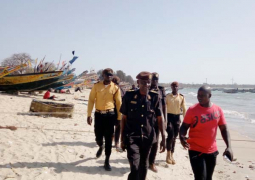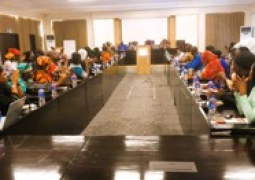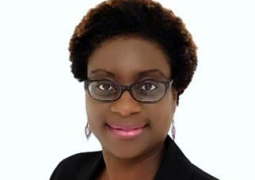This request was made during a dialogue session with citizens as part of a security sector reform tour conducted by the Office of National Security, under the Office of the President and supported by the UNDP.
During the discussion, Famara Kanyi expressed his concerns, particularly regarding the pay of service members, especially those in the army and outlined that all developed countries put a heavy budget on security, which has brought on more initiatives to be able to protect the people.
"The Gambia has focused primarily on human security, emphasising only basic resources such as weapons and fire tenders. The government should invest more in security, similar to how they finance other sectors," Mr Kanyi said.
He pointed out that most of the service members' installations in the country are not built by them; rather, they are either old buildings constructed by road contractors or accommodations left behind by previous occupants.
"As a concerned citizen, one begins to wonder if the government is truly prepared to take care of security,” he queried. “Corruption, such as taking bribe, often stems from insufficient pay. If salaries are received one month and run out within two days, citizens are left to survive for the next 28 days, leading to desperation and increased corruption."
Kanyi emphasised that if the government wants to combat corruption within the security services, it must invest in security and diversify the security workforce, which is currently lacking in the country.
“The government should start specialized security personnel in various areas, just like we have doctors, carpenters, and mechanics. We have also delayed on Security Sector Reforms (SSRs), and there is still no ready Act in place, leaving the matter under scrutiny for years. What will happen if DCAF leaves? What will we do as a country?” he questioned.
Similarly, Yankuba Sanneh, Commissioner of the Drug Law Enforcement Agency in the North Bank Region, stated that before one can feel secure, there must be a foundational level of safety established.
"My sector is the minority security apparatus in the country, and our work is even more dangerous than that of the Armed Forces. We go on operations without daring to carry a weapon. The people we encounter, who we are tasked with protecting, often beat, wound, and damage government properties. If we react, they accuse us of violating people's rights. Are we not people too?" Sanneh stressed.
Commissioner Sanneh further emphasised that without security, a country cannot prosper. He pointed out that their roles are not recognised, stating that all opportunities are stalled at the national and regional levels, and “the provinces do not benefit” from any established structures.
"None of the service members is gaining from these initiatives, and we must ask what we will have after retirement if all we know is policing," he added.
Hamadi Jeng from the Office of the Ombudsman, raised concerns about the implementation of security sector reforms. He noted that the initiative is aimed to foster trust between the government and the security forces, which he believes has not been achieved.
"The president has continually requested the extension of ECOMIG forces in the country, which hampers the effectiveness of the security sector reform. Additionally, the process of resizing retiring older service members to create opportunities for recruits has not been seen. This remains a concern for me," he emphasised.
Meanwhile, Superintendent Jatta stated that while the constitution exempts the army from paying ferry fares, this would apply only if their salaries were equal to those of the police.
"In other countries, police officers are compensated more than army personnel, often receiving additional privileges to balance this," Jatta explained. "However, in The Gambia, since we are all paid equally, any privileges granted should reflect across the board. All service members risk their lives for the country, and it would be unfair to grant benefits to one group while neglecting others."




